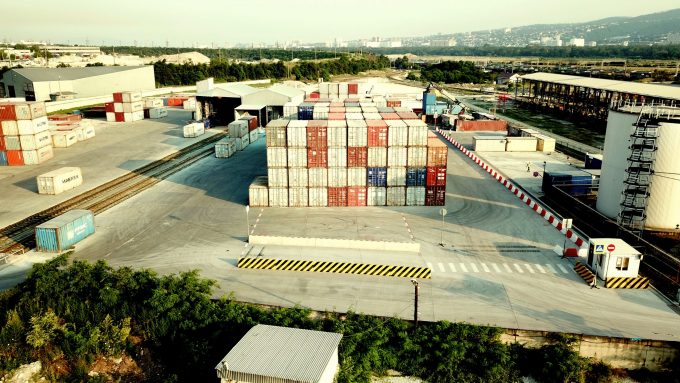Box lines scramble to secure new containership orders
The containership orderbook ratio now stands at just over 4m teu, or 27% of the ...
FDX: ABOUT USPS PRIVATISATIONFDX: CCO VIEWFDX: LOWER GUIDANCE FDX: DISRUPTING AIR FREIGHTFDX: FOCUS ON KEY VERTICALFDX: LTL OUTLOOKGXO: NEW LOW LINE: NEW LOW FDX: INDUSTRIAL WOESFDX: HEALTH CHECKFDX: TRADING UPDATEWMT: GREEN WOESFDX: FREIGHT BREAK-UPFDX: WAITING FOR THE SPINHON: BREAK-UP ALLUREDSV: BREACHING SUPPORTVW: BOLT-ON DEALAMZN: TOP PICK
FDX: ABOUT USPS PRIVATISATIONFDX: CCO VIEWFDX: LOWER GUIDANCE FDX: DISRUPTING AIR FREIGHTFDX: FOCUS ON KEY VERTICALFDX: LTL OUTLOOKGXO: NEW LOW LINE: NEW LOW FDX: INDUSTRIAL WOESFDX: HEALTH CHECKFDX: TRADING UPDATEWMT: GREEN WOESFDX: FREIGHT BREAK-UPFDX: WAITING FOR THE SPINHON: BREAK-UP ALLUREDSV: BREACHING SUPPORTVW: BOLT-ON DEALAMZN: TOP PICK

Maersk’s first inland container depot (ICD), in Russia, 10km outside the Black Sea port of Novorossiysk, aims to convert much of the bulk cargo in the region to container traffic.
Zsolt Katona, head of Maersk Eastern Europe, said only 6% of export volumes from Russia were containerised and Maersk intended to use the new ICD as a logistics centre, handling up to 25,000 boxes annually.
He said: “Depots are ‘logistics shopping malls,’ providing clients with a unique value proposition and complex logistics solutions, such as container preparation, container stuffing from conventional rail wagons, trucking, storage facilities and others.”
The facility is connected to the port by two rail services, as well as good road connections, according to the Danish carrier.
Mr Katona said customers could now “make destination routing decisions on arrival at the discharge port, instead of at origin.”
He added: “Operating inland services in Novorossiysk allows Maersk to offer differentiated and unique end-to-end integrated solutions from stuffing at origin to delivering at overseas destinations.”
Comment on this article